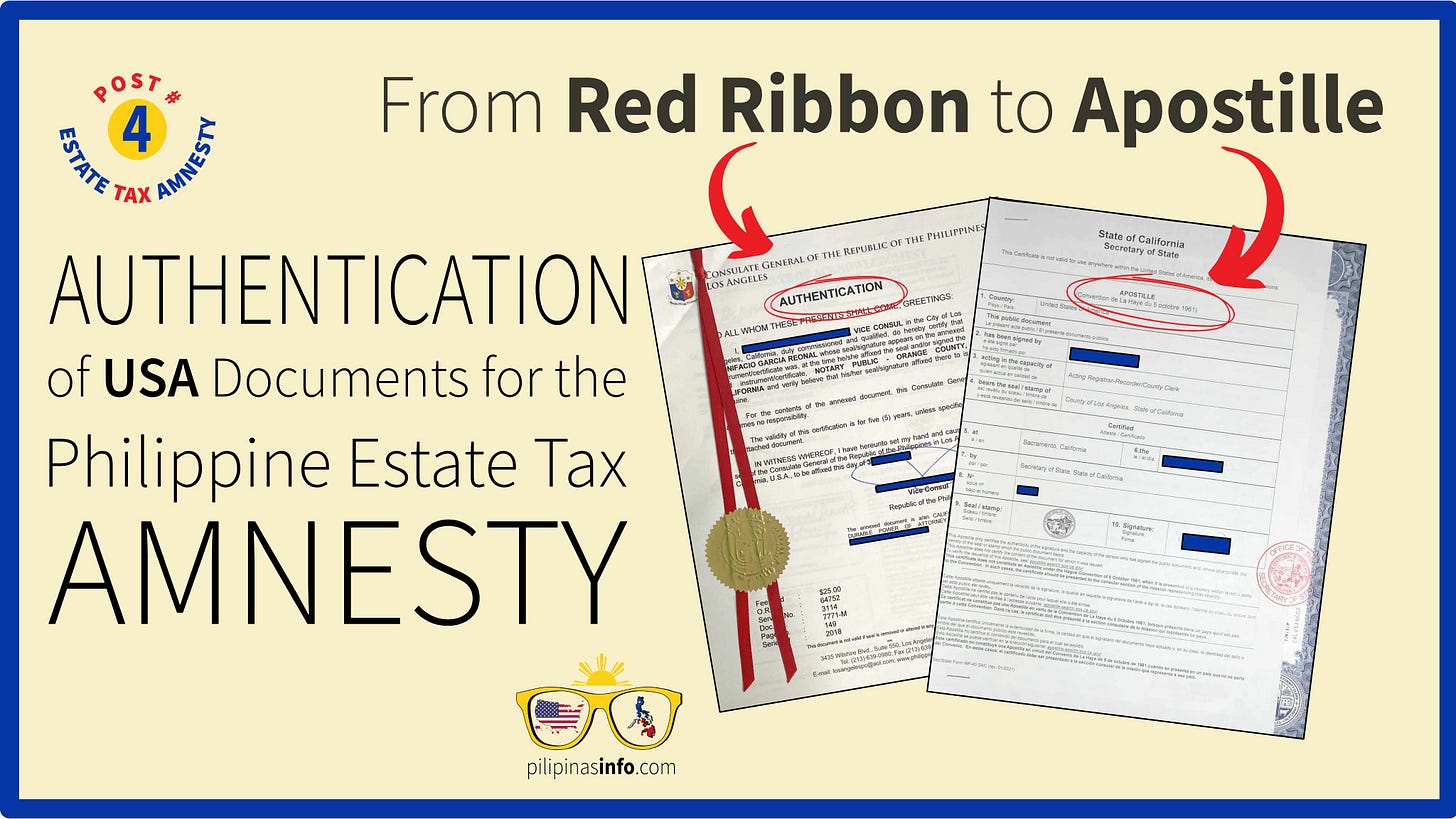Red Ribbon Documents to Apostille
Authentication of USA Documents for the Phil. Estate Tax Amnesty (Post #4)
On November 2021, a Philippine bank asked me for a Red Ribbon document instead of the weird looking Apostille-certified Special Power of Attorney my representative had. I had to send the bank a long letter explaining what an Apostille is and why they should recognize it. Like this bank, many need to be updated about certification of foreign documents especially when preparing for the Philippine Estate Tax Amnesty. If you missed the previous posts in this series, here are the links:
In this post, we will talk about WHAT and HOW to get a State Apostille from the USA.
From Red Ribbon to Apostille
On May 2019, different Philippine Consulates in the USA stopped authenticating signed documents, usually known as Red Ribbon Documents because of how it looks. The NYC Philippine Consulate explained that: “An Apostille is a certificate that authenticates the origin of a public document. It is issued by a country that is party to the Apostille Convention to be used in another country which is also a party to the Convention. The United States is a party to the Convention and the Philippines also acceded to the Convention on 14 May 2019.” In other words, when the Philippines joined the Hague Convention Treaty, foreign issued documents, like birth and death certificates, now go through a process called Apostille. Let me explain further by sharing my experiences.
The first thing I had to Apostille was a Special Power of Attorney (SPA) for my Philippine-based representative. I had to authorize somebody to go to different Philippine government offices for me and receive the PSA Birth and Death Certificates I ordered online. Some Philippine consulates, like the one in Los Angeles CA, can notarize it for you. Actually, there is another way: let UPS or FedEx notarize it. Here is how I did it:
I got an SPA template - the LA Philippine Consulate published sample legal forms and one of them is an SPA
I revised the sample according to my specific needs, for example, I wrote that I authorized my cousin to represent me in everything related to the land I inherited but is not authorized to sell it.
I went to a place where they notarize signed documents in the state where I live. FedEx and UPS have notarization services so there is one near you.
I looked for the official Apostille website of my state and followed its instructions. For example, if you live in California, you’ll find their link here. If you live elsewhere, just google “Apostille” and the name of your state then click on the link that has a *.gov domain or something similar.
Remember, everything I share is for informational purposes only. Contact a law professional if you need specific instructions for your case.
So what do you need to Apostille? Well, if you are in the USA and need to authorize somebody to represent you in the Philippines, you need to notarize a Special Power of Attorney then Apostille it. Make sure that you notarize and Apostille it in the SAME state. Read the Apostille requirements of your state and follow it. My first attempt was delayed because the stamp of the UPS Notary did not specify my county. Second, if somebody in your family died, married or was born in the USA you need to:
get an original birth, death or marriage certificate issued by the state
send it to the Apostille office of that state for certification
What if your relative changed his name in the USA and his birth certificate in the Philippines is different? The process is different for a name change is a court document. I’ll discuss this topic in the next post.




